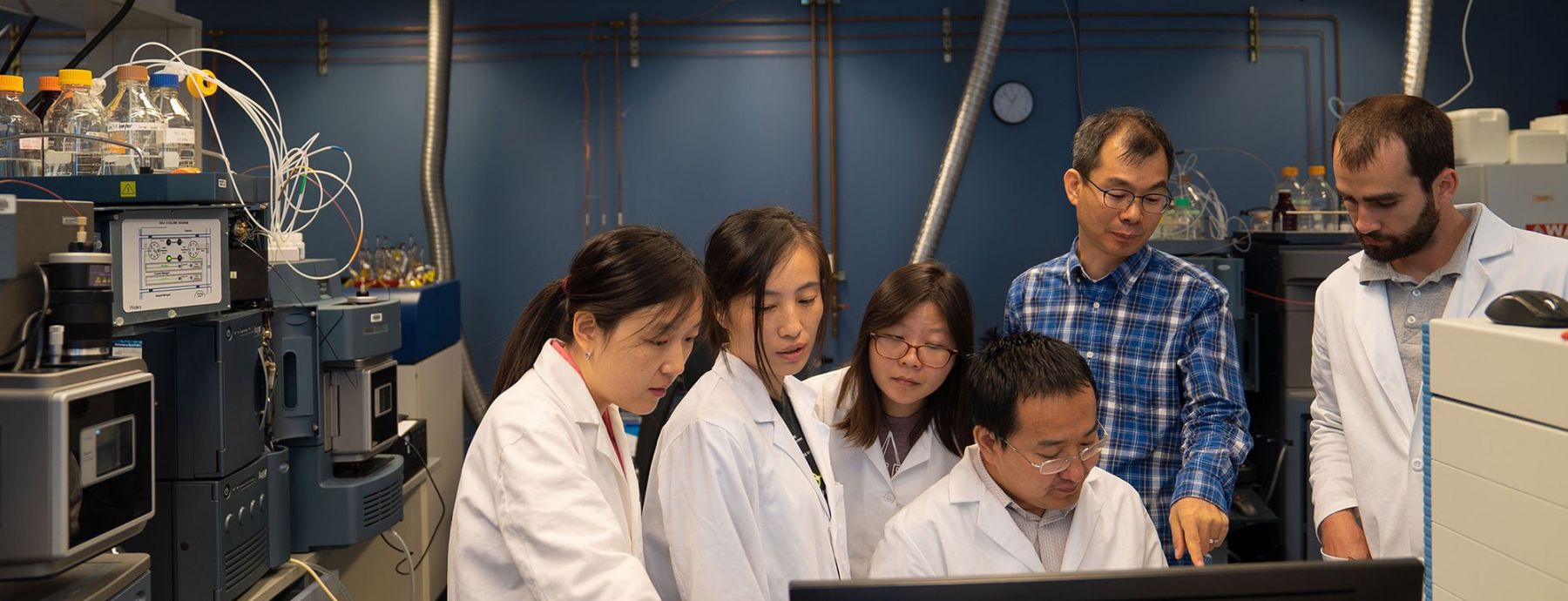Our primary goal is to identify and quantify the small (<1kDa) molecules present in plant and animal biofluids and tissue extracts, as identifying perturbations in the amounts of particular metabolites can offer insights into the underlying biological processes involved in their production.

Metabolomics Core Facility
Conducting metabolomics studies on a variety of biofluids and tissue extracts from plant and animal sources
News
Penn State students take top honors in video challenge on the value of research
A team of students working in Andrew Patterson's lab used their experience in research and storytelling to advocate for federally funded research and take top prizes in the Science Coalition’s 2025 Alyse Gray Parker Memorial Student Video Challenge
New genomics, metabolomics instruments added to Huck facilities
Recently acquired scientific instruments have enhanced the research capabilities of two Huck facilities.
Two College of Ag Sciences faculty earn spots on highly cited researchers list
Francisco Dini-Andreote and Andrew Patterson in Penn State’s College of Agricultural Sciences are among the most highly cited researchers in 2025, according to the Clarivate Analytics Web of Science Group.
News
Penn State students take top honors in video challenge on the value of research
A team of students working in Andrew Patterson's lab used their experience in research and storytelling to advocate for federally funded research and take top prizes in the Science Coalition’s 2025 Alyse Gray Parker Memorial Student Video Challenge
New genomics, metabolomics instruments added to Huck facilities
Recently acquired scientific instruments have enhanced the research capabilities of two Huck facilities.
Two College of Ag Sciences faculty earn spots on highly cited researchers list
Francisco Dini-Andreote and Andrew Patterson in Penn State’s College of Agricultural Sciences are among the most highly cited researchers in 2025, according to the Clarivate Analytics Web of Science Group.
Modern methods in biological research course to be offered in spring 2026
Huck Institutes of the Life Sciences core facilities are offering a new course for spring 2026, Modern Methods in Biological Research, for upper-level undergraduate students and graduate students studying in the life sciences.